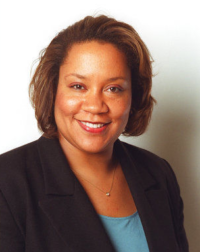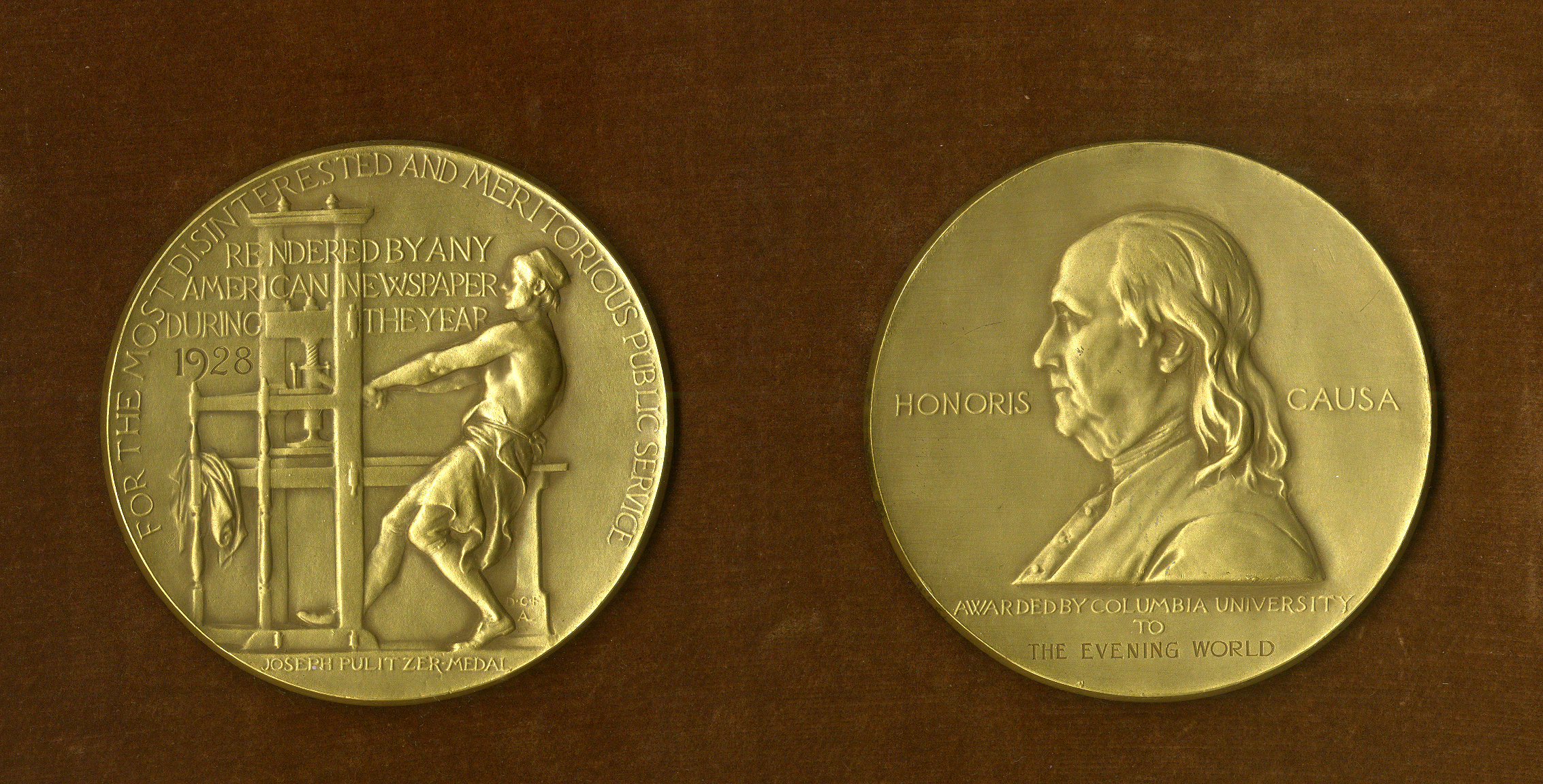This week, the Pulitzer Prizes announced longtime New York Times journalist Dana Canedy as its new administrator. Effective July 17, Canedy will replace Mike Pride, editor emeritus of the Concord (N.H.) Monitor, who plans to retire after three years in the role.
Canedy joined the Times in 1996 following eight years of reporting and editing at The Plain Dealer in Cleveland, Ohio. She was part of the team that won the Pulitzer for National Reporting in 2001 for the series “How Race is Lived in America.” She also covered the 2000 presidential election recount and flight-school trainings of the 9/11 terrorists, and led national breaking-news coverage at the Times. Following the death of her partner, First Sergeant Charles Monroe King, in 2006, she published her memoir, A Journal for Jordan: A Story of Love and Honor, using the journal entries he wrote while in Iraq. Most recently, she worked as a senior editor at the Times, as well as a special adviser to its CEO and executive editor.
CJR spoke with Canedy about diversity in journalism, the evolution of the Prizes, and the importance of the Prizes in an increasingly anti-media environment. The following conversation has been edited for length and clarity.
You’re the first woman, first person of color, and the youngest person selected as Pulitzer administrator. What do you think your selection means for the Prizes?
First of all, I commend the search committee and board for a very rigorous process that really pushed and stretched me to think about what this means. And I think what it ultimately means is they selected somebody who will always be deferential to the board’s final decisions on things, but [who] will push the board to think in new ways as the industry evolves. I also think it means the organization has established itself as a leader on diversity and journalism. I think my selection—in fact, I was told—had nothing to do with gender and race, but it is true, as you stated, that I am the first woman and person of color, and I think there’s no longer any excuses for any news organization to say there are no qualified women or people of color. I’m not a unicorn. There are so many women and people of color out there who can perform at high levels. I think that the Pulitzers should be commended for setting the standard in the industry, even though that was not the primary [factor] in my selection. It’s a byproduct and benefit of it.
We did a study at CJR on the Pulitzer Prizes last year and found that since 1917, 84 percent of winners had been men and 84 percent had been white. How do you see the Prizes evolving under your leadership?
First of all, I do think that’s changing, if you look at the most recent selections. It’s an incredibly diverse group, and so it’s already changing. During the interview process, there were discussions and questions of diversity in terms of the jury pools and so forth. That’s a place where we can make some progress, and will. There are a lot of ways we can move the dial on this, and I will be sitting down with the board to discuss their thoughts on diversification. I have a lot of thoughts on it, some of which I haven’t been able to share with the board yet and still need to ponder, but this is going to be one of my priorities.
ICYMI: Journalist behind depressing, viral Trump Jr. tweet speaks
When it comes to diversity, we’re not just talking about the people nominated. How will you address the lack of diversity in the kind of content recognized?
That’s a really fabulous question. As jury pools become more diverse, what is considered as finalists will evolve as well. I also think news cycles will drive some of that; immigration is a huge story. There’s lots of work coming in about issues related to policing and race, racial inequality, but [there’s] also a lot to celebrate when it comes to work done by women and people of color in everything from medicine to technology. There’s so much going on in our country that speaks to diversity that will drive diversification. But our selection of a more diverse jury pool will impact that as well.
What are some of the other changes you’re hoping to bring to the Prizes?
So I think you’re going to continue to see an evolution in terms of the categories and eligibility rules just as there is an evolution going on in the journalism industry. In this age of digital transformation and new platforms for consuming news and social media’s role in news. Specifically how that will look I’m gonna need to talk to the board about some of my ideas, hear what priorities are for them, and build from there. I think it’s premature to announce what we will be doing, a lot of it is still being considered. But I’m excited that there is so much openness from the board about continuing to invigorate and evolve as an organization.
I will also say, having come from a news organization that had a storied brand and an amazing history, I’m profoundly sensitive to being judicious towards a brand like the Pulitzers, and in some respects, we’ll be conservative with the brand. But [we’ll] also realize [that], like the industry, we have to evolve. There will be some ways, I’m sure, where we will keep things the way they are, and other ways we will profoundly change.

Dana Canedy. Photo: Pulitzer Prizes
RELATED: A new model for high-impact investigative reporting
How do you think the Pulitzer Prizes have changed as the industry as changed?
Last year, you saw an amazingly diverse of selection of winners, and part of the evolution. My predecessor Mike Pride and his team, which will now be my team, have done an amazing job at improving the use of social media, updating the website. I still want to do some things along those lines; there’s still some work to be done.There are tremendous [ways] we can still evolve and modernize. My ideas around that kind of work are why I was selected.
You won a Pulitzer back in 2001. How does winning one of the Prizes change the trajectory of someone’s journalistic career?
So I came from an organization that was blessed with a long history of winning Pulitzers. The Times is a place where, obviously, Pulitzer Prizes are very important, but it’s also a place where people don’t rest on their laurels, and we didn’t. It’s wonderful to have a prize that celebrates the best of American journalism, but I never got into this field to win a Pulitzer. I actually think it’s the wrong approach to journalism, to have that be the end goal. The goal of any journalist should be to do the best work possible, groundbreaking work that can influence institutions and organizations and agencies and affect people’s lives. It should always be about the work.
How is the role of the Pulitzer Prizes changing in this era of “fake news”? Does it take on even greater importance?
Absolutely. I think my first year will really be dedicated to becoming the expert on the Pulitzer Prizes, and the process, and building my relationship with the board members and my staff. One of the things we need to do, and I said this during the interview process, is look at ways we can uplift and support journalism in a time when it’s under siege. It’s premature for me to comment on what that’s going to look like, but I have some very strong thoughts and ideas about other ways we can use our brand to support journalism.
Meg Dalton is a freelance journalist and audio producer based in Connecticut. She's reported and edited for CJR, PBS NewsHour, Energy News Network, Architectural Digest, MediaShift, Hearst Connecticut newspapers, and more. Follow her on Twitter: @megdalts. Find her on Twitter @megdalts.


